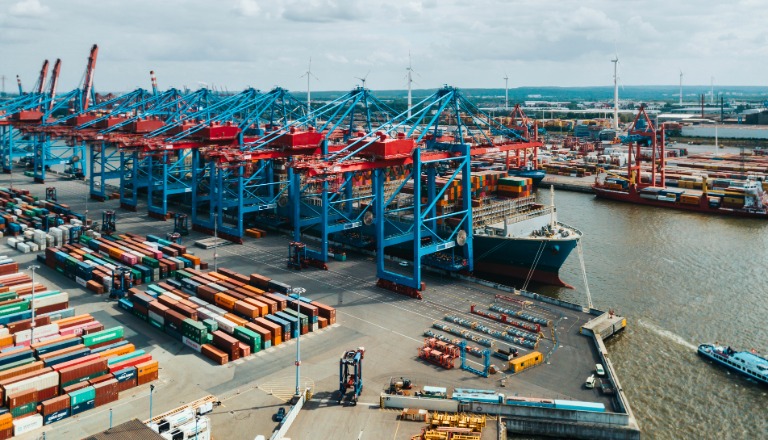
Doing business in Italy: What Canadian exporters need to know
In this article:

Italy is synonymous with coffee, pasta, luxury fashion brands and fast cars. With a rich cultural history, this tiny peninsula has set the global benchmark for style and produces some of the world’s most valued products in the automotive, defence, fashion, food, machinery and advanced manufacturing sectors.
Northern Italy is one of Europe’s most industrialized regions, with much of its manufacturing base composed of small- and medium-sized enterprises (SMEs) that produce high-quality goods.
In 2023, Italy had the third-largest economy in the European Union (EU), according to the International Monetary Fund (IMF). It’s also Europe’s second-largest manufacturing nation after Germany, with enormous capabilities across a wide range of industries.
Bilateral trade between Canada and Italy is significant and growing—in 2023 (the most recent figure available), it approached $15.3 billion. Canada’s exports to Italy in 2023 reached $1.99 billion.
In September 2017, CETA came into provisional effect, eliminating most EU import tariffs, reducing many regulatory barriers and improving labour mobility. These advantages can help you compete with European companies on their home ground and give you a competitive edge over your international competition in the EU market.
“CETA affords tremendous opportunities for Canadian companies to access European markets on preferential terms,” says Bruce Dunlop, Export Development Canada’s regional vice-president. “Seizing opportunities in Italy, in particular, requires visiting the market and setting up a strong network to break into critical supply chains such as transportation, aerospace and advanced manufacturing industries.”
Federica Leonetti of the Enterprise Europe Network agrees. “CETA has definitely strengthened the ties between Italy and Canada. It’s the most important trade agreement ever signed between Canada and Europe because it liberalized tariffs, allowing Canadian companies to bid on European public tenders, supports worker mobility and provides favoured treatment for investors.”
You should also check out
How Canadian exporters can reduce trade risks and successfully enter high-growth European markets.
Canada’s major exports to Italy in 2023, in terms of dollar value, included:
- Pharmaceuticals ($305 million)
- Mineral fuels, oils and distillation products ($60 million)
- Machinery, boilers and nuclear reactors ($190 million)
- Cereals ($437 million)
- Aircraft ($280 million)
- Vegetables and edible roots ($80 million)
- Electrical, electronic equipment ($63 million)
Source: Statistics Canada, Trading Economics and Observatory of Economic Complexity (OEC)
If you’re considering Italy as a possible export destination, you may find opportunities throughout these sectors. If you’re not in one of these industries, there are several others that may offer possibilities, including:
- Advanced manufacturing technologies
- Smart-grid power technologies
- Wood and paper products
- Information and communications technologies
- Medical devices
- Processed foods, fish and seafood
Leonetti also identifies some specific opportunity areas for Canadian companies. “For investment, these include the aerospace, infrastructure and automotive sectors. For exports: Food and beverages, mineral and chemical products, machinery and furniture.”
When it comes to market entry, Dunlop has some basic advice. “The best approach is to have a clear understanding of your objectives, whether they’re to attain a certain market share, or to use Italy as a beachhead for a Pan-EU strategy. You must also have a solid handle on the partners you’ll need to work with, and the rules you’ll need to comply with, to achieve those goals.”
Where to get help
- For detailed information about exporting to the EU, visit the European Commission Trade Helpdesk.
- The Canadian Trade Commissioner Service (TCS) in Rome has specialists who can help you explore Italy’s industrial and service sectors and identify opportunities within them.
CETA has made it easier for Canadian companies to operate in all the EU nations, including Italy. But language barriers, cultural differences and unfamiliar ways of doing business can be challenges for Canadian companies that want to enter the Italian market. Working with partners familiar with local conditions is an ideal first step. They can help you:
- find customers
- arrange distribution channels
- handle documentation
- clear your goods through customs
- provide after-sales service
The regulatory regimes established by the EU can be a second hurdle—the requirements may seem intimidating, especially if you’re new to the market. Some of the major issues include:
- establishing the correct product classification for your goods
- establishing the origin of your products under the EU rules of origin
- complying with health, safety, consumer protection and environmental regulations
- complying with packaging and marking rules
You should always consult trade professionals when determining how EU regulations will affect your exports to Italy.
Finally, slow or late payment has been a persistent problem across several EU markets. For domestic Italian businesses, cash flow problems are often aggravated by poor payment behaviour from their local customers. Outside the private sector, Italian government buyers are especially likely to pay late. If you’re concerned that late payment may become non-payment, you should protect your receivables by using a product such as EDC credit insurance.
Personal relationships are the basis of Italy’s business culture. No transaction can be discussed until your Italian counterparts have gotten to know you and are comfortable with you. Allowing time for these relationships to form is important. If you don’t, it may become very difficult to move negotiations forward.
All this implies, of course, that you’ll need to visit Italy and meet the people with whom you want to do business. An in-person visit also tells them that you’re willing to invest time and effort into building connections. For more detailed information about navigating Italy’s business culture, refer to the Trade Commissioner Service’s pages on visiting Italy.
- Take advantage of CETA’s provisions to gain preferential access to the Italian market.
- Work with Italian partners and/or intermediaries to facilitate your market entry.
- Review with trade specialists to make sure you’re complying with all EU regulations that apply to your product.
- Visit potential partners and customers in Italy, so you can get to know them and their business culture.
- If non-payment is a possibility, protect your receivables with EDC credit insurance.
- Once you’ve done your market research, consult with the Trade Commissioner Service (TCS) to seek opportunities, contacts and other key information about doing business in Italy.
EDC’s Export Help Hub provides expert answers to the most frequently asked trade-related questions. Create a free MyEDC account for the answers to these questions about doing business in Italy, or ask an advisor a question of your own.
How can I learn more about the agri-food sector in Europe?
What’s the de minimis rule for Europe?


















